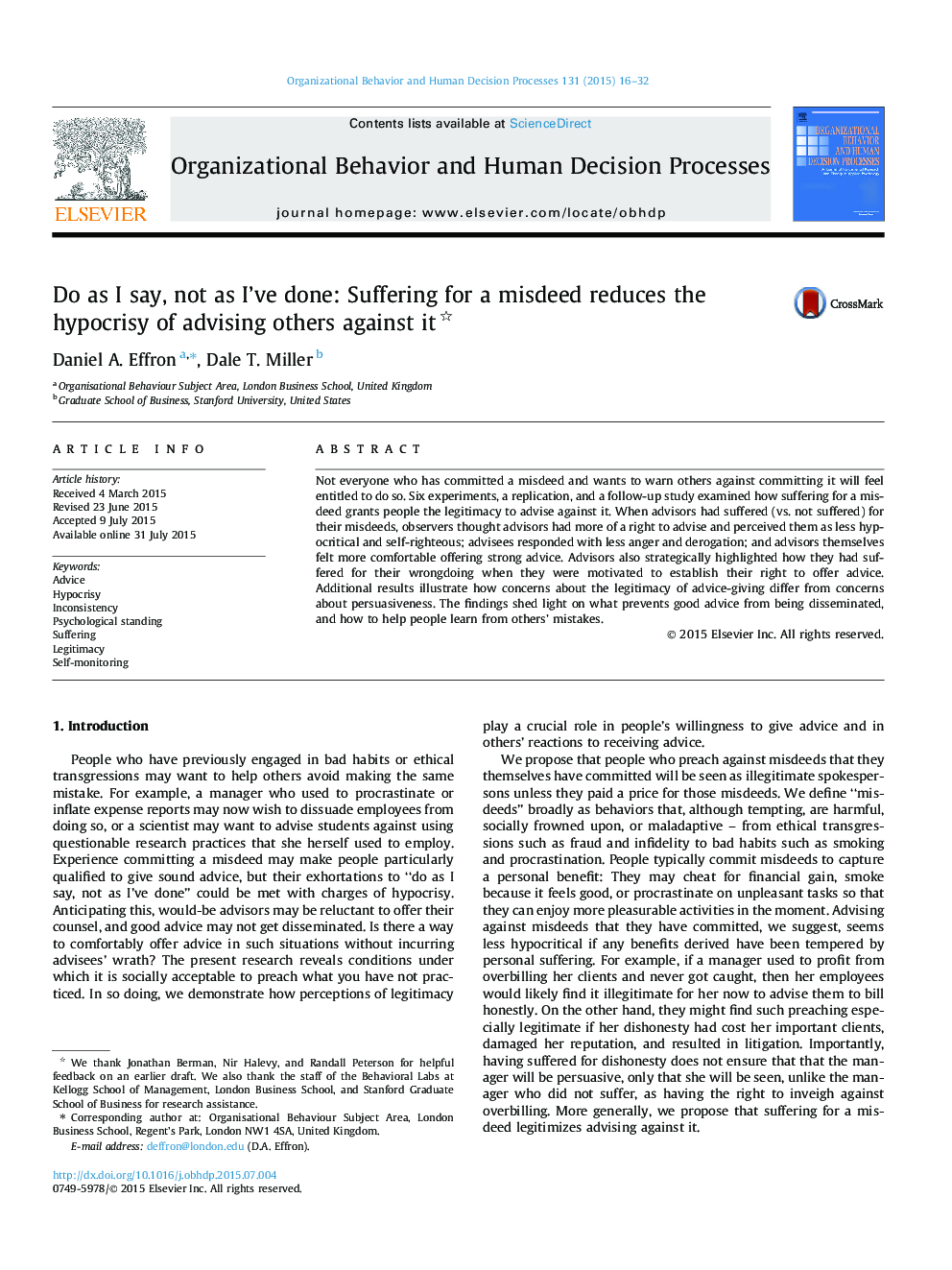| Article ID | Journal | Published Year | Pages | File Type |
|---|---|---|---|---|
| 888468 | Organizational Behavior and Human Decision Processes | 2015 | 17 Pages |
•People who advise against a misdeed that they committed seem hypocritical.•But suffering for the misdeed can grant people the legitimacy to advise against it.•Advice from a wrongdoer elicited less anger when he had suffered for his misdeed.•Paying a price for misdeeds disinhibited people to advise against them.•Concerns about legitimacy and hypocrisy can hinder the dissemination of good advice.
Not everyone who has committed a misdeed and wants to warn others against committing it will feel entitled to do so. Six experiments, a replication, and a follow-up study examined how suffering for a misdeed grants people the legitimacy to advise against it. When advisors had suffered (vs. not suffered) for their misdeeds, observers thought advisors had more of a right to advise and perceived them as less hypocritical and self-righteous; advisees responded with less anger and derogation; and advisors themselves felt more comfortable offering strong advice. Advisors also strategically highlighted how they had suffered for their wrongdoing when they were motivated to establish their right to offer advice. Additional results illustrate how concerns about the legitimacy of advice-giving differ from concerns about persuasiveness. The findings shed light on what prevents good advice from being disseminated, and how to help people learn from others’ mistakes.
